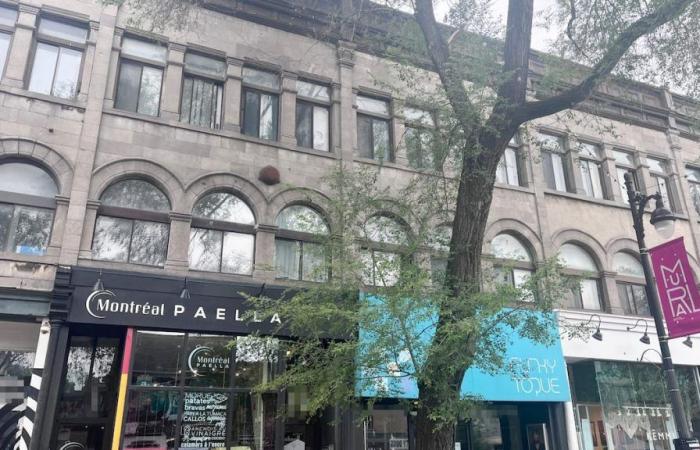A large Montreal owner is taking advantage of the vagueness in the law to rent student accommodation on Airbnb during the summer period.
The newspaper discovered this scheme while scrutinizing a particularly active Airbnb host in Montreal: Hayley.
In mid-June, it posted 17 advertisements for “main residences” for rent, in buildings all belonging to a single owner: Immobilier Yuliv.
There were 14 different students who made the registration requests with the Ministry of Tourism, in exchange for a rent holiday.
“It is [Yuliv] “Who came up with this idea. They rent for us and we don’t pay rent until we come back at the end of August,” explains a tenant who requested anonymity because he still has a lease with Yuliv.
He and his roommates had to empty their apartment of their personal belongings and store them elsewhere.
- Listen to the explanations of journalist Dominique Cambron-Goulet via OLD :
Income to the owner
Two accommodations in this building on Avenue du Mont-Royal are available for rent on Airbnb. Both were registered with the Ministry of Tourism by students who do not live there during the summer. Photo Dominique Cambron-Goulet, JDM / Screenshot taken from Airbnb
“We don’t hide it,” says Yuliv’s president, Ali Farasat. “It’s a way for us to get a little more rent. The students almost all leave during the summer. It’s a benefit for them.”
He still admits that for certain tenants who have obtained the permit will not return to their accommodation next September, because their lease “ends on August 31”.
Mr Farasat said he makes “little money” from these rentals because the host, which is a management company, “takes 20%” of the revenue. He would not say which company was behind Hayley’s profile.
The student believes that Yuliv must certainly earn more income from Airbnb rentals than from regular rent.
“Otherwise, they would have no reason to offer this to us,” he says.
He claims not to receive any income from the rentals, although it is officially his “main residence”.
Non-conforming
A home in this Plateau building belonging to Yuliv has been for rent on Airbnb as a “primary residence” since 2023, after being removed from the platform for nearly 4 years due to municipal regulations. PHOTO DOMINIQUE CAMBRON-GOULET, JDM / SCREENSHOT FROM AIRBNB
Mr. Farasat judges that there is nothing “illegal” in serving as a facilitator for students to rent on the platform.
“We went to the City with the tenants and they told us that there is no problem because they live there,” he assures.
However, the elected official responsible for the housing file in the Plante administration, Benoit Dorais, does not share the same opinion.
“This type of business does not seem to me to be at all in accordance with the law,” he says.
The elected official recalls that the objective of the Quebec government in allowing people to rent out their main residence is to encourage the “collaborative economy.”
“If a company asks students to apply for CITQ numbers, so that the owner can rent on Airbnb. You are not in the collaborative economy. There is someone who is doing a commercial activity,” believes Mr. Dorais.
Doctoral student at the University of Waterloo and specialist in short-term rentals Cloé St-Hilaire, recalls that the use of a third party to manage cleaning or reservations is not directly regulated by Quebec law.
“The laws are only that you have to declare the income that is derived from your short-term rental,” she says.






